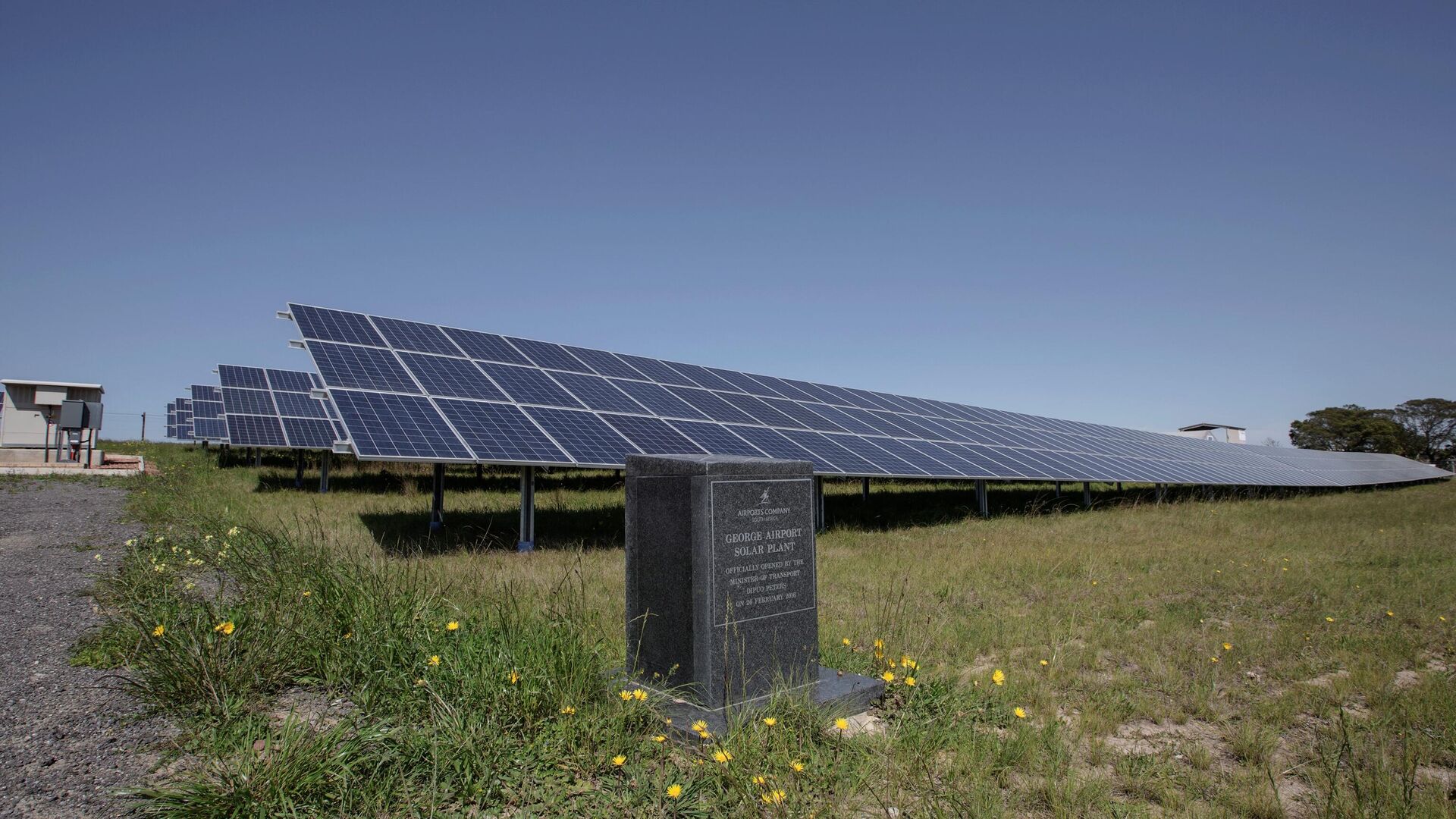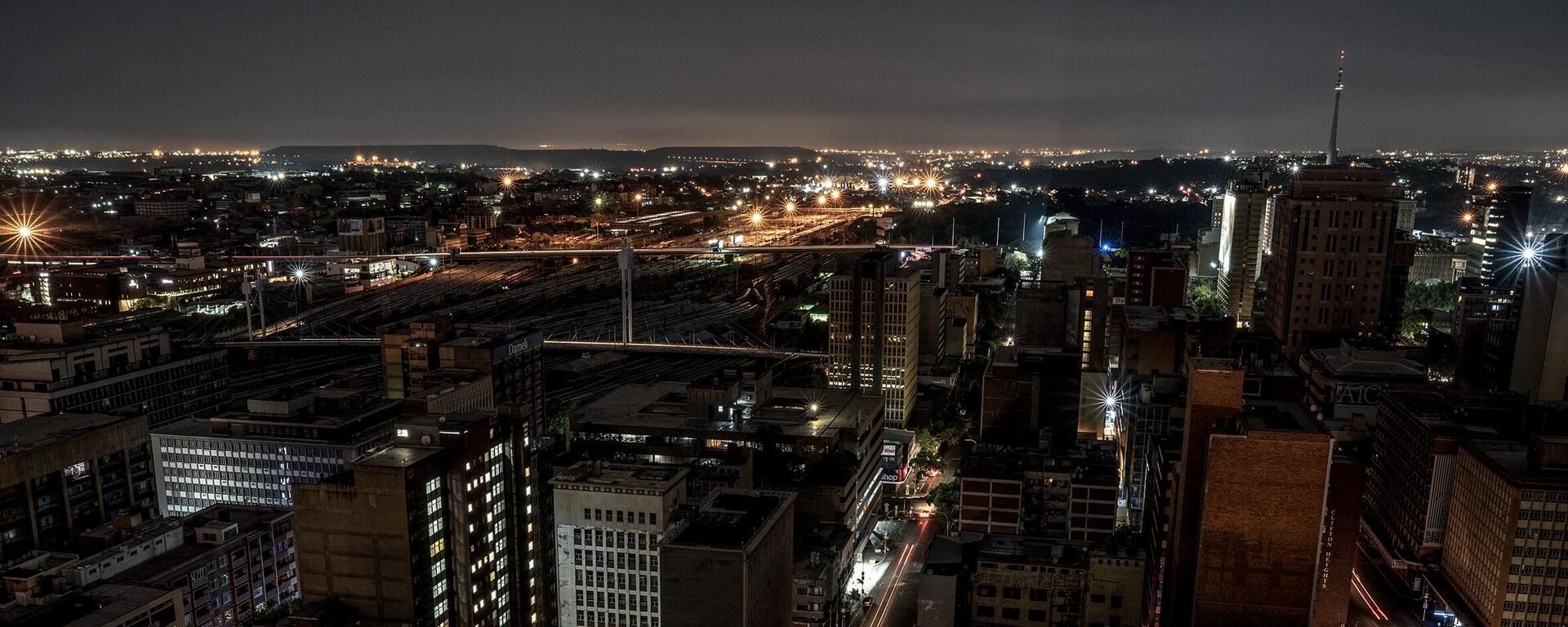https://sputnikglobe.com/20230331/south-africas-cabinet-approves-bill-that-allows-private-power-generation-trading-1108961530.html
South Africa's Cabinet Approves Bill That Allows Private Power Generation, Trading
South Africa's Cabinet Approves Bill That Allows Private Power Generation, Trading
Sputnik International
South Africa's Cabinet has approved a bill aimed at liberalizing the country's electricity market, in a move that would pave the way for private generation projects and power trading in the country amid a historic power crisis.
2023-03-31T06:25+0000
2023-03-31T06:25+0000
2023-03-31T06:25+0000
africa
southern africa
south africa
electricity
energy crisis
electricity power crisis
government
cyril ramaphosa
https://cdn1.img.sputnikglobe.com/img/07e7/03/09/1108217433_0:176:3073:1904_1920x0_80_0_0_809d0c755b7eaa535eaa37605201dae1.jpg
South Africa's Cabinet has approved a bill aimed at liberalizing the country's electricity market, in a move that would pave the way for private generation projects and power trading in the country amid a historic power crisis.The Electricity Regulation Amendment Bill is designed to establish a competitive market and an entity that will buy power. For over a century, Eskom Holding SOC Ltd, the state-owned utility, has provided more than 90% of electricity for the most industrialized country on the African continent.The bill would strengthen the role of the National Energy Regulator of South Africa and allow measures to create a transmission system operator. The new bill is a step towards separating Eskom's business units into generation, transmission, and distribution units.The bill's approval comes at a time when Eskom has become an unprofitable utility, despite its monopoly over the country's electricity market. The separation of Eskom's business units is expected to reduce the company's debt and increase efficiency in the long run.According to Minister in the Presidency Khumbudzo Ntshavheni, the Draft Electricity Amendment Bill has been approved for submission to parliament and will be prioritized.South Africa has been struggling with power shortages for over a decade, but the situation has escalated in recent years, with frequent power outages and load shedding becoming a daily reality for millions of South Africans. The crisis has been caused by a combination of factors, including poor planning, aging coal-powered electricity generation plants, and corruption in the national power utility, Eskom.To address the ongoing crisis, in February, the government of President Cyril Ramaphosa declared a "national state of disaster to respond to the electricity crisis and its effects."This state of disaster regime allowed the government to take a series of practical measures to support Eskom to ensure an uninterrupted energy supply to avoid the both the economy and social effects of the energy crisis, including the establishment of a new ministry for electricity.Later in February, the government announced that it would take on $14 billion of Eskom's $23 billion in debt to enable the company to pay down its debt and interest obligations. In the mean time, there has been a change in the administration of the state company.
https://sputnikglobe.com/20230310/south-africas-private-sector-to-contribute-54-million-to-tackling-energy-crisis-1108244939.html
africa
southern africa
south africa
Sputnik International
feedback@sputniknews.com
+74956456601
MIA „Rossiya Segodnya“
2023
Muhammad Nooh Osman
https://cdn1.img.sputnikglobe.com/img/07e4/08/0e/1080170965_2:0:2050:2048_100x100_80_0_0_1de8233c87df0979e7e74f61b6ffacad.jpg
Muhammad Nooh Osman
https://cdn1.img.sputnikglobe.com/img/07e4/08/0e/1080170965_2:0:2050:2048_100x100_80_0_0_1de8233c87df0979e7e74f61b6ffacad.jpg
News
en_EN
Sputnik International
feedback@sputniknews.com
+74956456601
MIA „Rossiya Segodnya“
Sputnik International
feedback@sputniknews.com
+74956456601
MIA „Rossiya Segodnya“
Muhammad Nooh Osman
https://cdn1.img.sputnikglobe.com/img/07e4/08/0e/1080170965_2:0:2050:2048_100x100_80_0_0_1de8233c87df0979e7e74f61b6ffacad.jpg
south africa, south africa power crisis, loadshedding in south africa, south african government, government response to loadshedding, power crisis in south africa, energy crisis, electricity crisis, electricity regulation amendment bill, sa electricity regulation amendment bill, south africa electricity bill
south africa, south africa power crisis, loadshedding in south africa, south african government, government response to loadshedding, power crisis in south africa, energy crisis, electricity crisis, electricity regulation amendment bill, sa electricity regulation amendment bill, south africa electricity bill
South Africa's Cabinet Approves Bill That Allows Private Power Generation, Trading
Muhammad Nooh Osman
Writer/Editor
South Africa, one of the most developed nations in Africa, is currently facing a severe electricity crisis that threatens to undermine both its economy and social stability. To handle the situation, the government declared a "national state of disaster", took on 60% of national power utility Eskom's debt, and established a ministry for electricity.
South Africa's Cabinet has approved a bill aimed at liberalizing the country's electricity market, in a move that would pave the way for private generation projects and power trading in the country amid a historic power crisis.
The Electricity Regulation Amendment Bill is designed to establish a competitive market and an entity that will buy power. For over a century,
Eskom Holding SOC Ltd, the state-owned utility, has provided more than 90% of electricity for the most industrialized country on the African continent.
The bill would strengthen the role of the National Energy Regulator of South Africa and allow measures to create a transmission system operator. The new bill is a step towards separating Eskom's business units into generation, transmission, and distribution units.
"The objectives of the Amendment Bill are to: strengthen the role of the National Energy Regulator of South Africa; strengthen the provisions related to licensable and unlicensable (exempted) activities; make provisions for transitional measures for the creation of the Transmission System Operator (TSO); and define the functions of the TSO which, amongst others, include provision of an electricity trading platform on a multi-market basis, and provide access to the transmission network on a non-discriminatory basis," the government said in a statement.
The bill's approval comes at a time when Eskom has become an
unprofitable utility, despite its monopoly over the country's electricity market. The separation of Eskom's business units is expected to reduce the company's debt and increase efficiency in the long run.
According to Minister in the Presidency Khumbudzo Ntshavheni, the Draft Electricity Amendment Bill has been approved for submission to parliament and will be prioritized.
South Africa has been struggling with power shortages for over a decade, but the situation has escalated in recent years, with frequent power outages and load shedding becoming a daily reality for millions of South Africans. The crisis has been caused by a combination of factors, including poor planning, aging coal-powered electricity generation plants, and corruption in the national power utility, Eskom.
To address the ongoing crisis, in February, the government of President Cyril Ramaphosa declared a "national state of disaster to respond to the electricity crisis and its effects."
This state of disaster regime allowed the government to take a series of practical measures to support Eskom to ensure an uninterrupted energy supply to avoid the both the economy and social effects of the energy crisis, including the
establishment of a new ministry for electricity.
Later in February, the government announced that it would take on $14 billion of Eskom's $23 billion in debt to enable the company
to pay down its debt and interest obligations. In the mean time, there has been a change in the administration of the state company.




